Clinical Project: ECG Interpretation & Arrhythmia Management in ED
VerifiedAdded on 2023/04/10
|8
|442
|380
Project
AI Summary
This clinical project addresses the issue of poor ECG interpretation in the emergency department, which leads to high mortality and in-hospital cardiac arrest rates. The project aims to enhance nurses' knowledge and competence in ECG interpretation and arrhythmia management through literature review and professional development strategies. The review highlights the significance of ECGs in identifying complications and treating abnormal heart rhythms, and it explores innovative teaching methods such as online teaching, flipped classrooms, and simulation experiences to bridge the theory-to-practice gap. The project evaluates the outcomes of different learning techniques, emphasizing the necessity of practical exposure and mentorship to overcome barriers in clinical settings. Ultimately, the project seeks to improve patient outcomes by enhancing the ECG interpretation skills of nurses in the emergency department.
1 out of 8
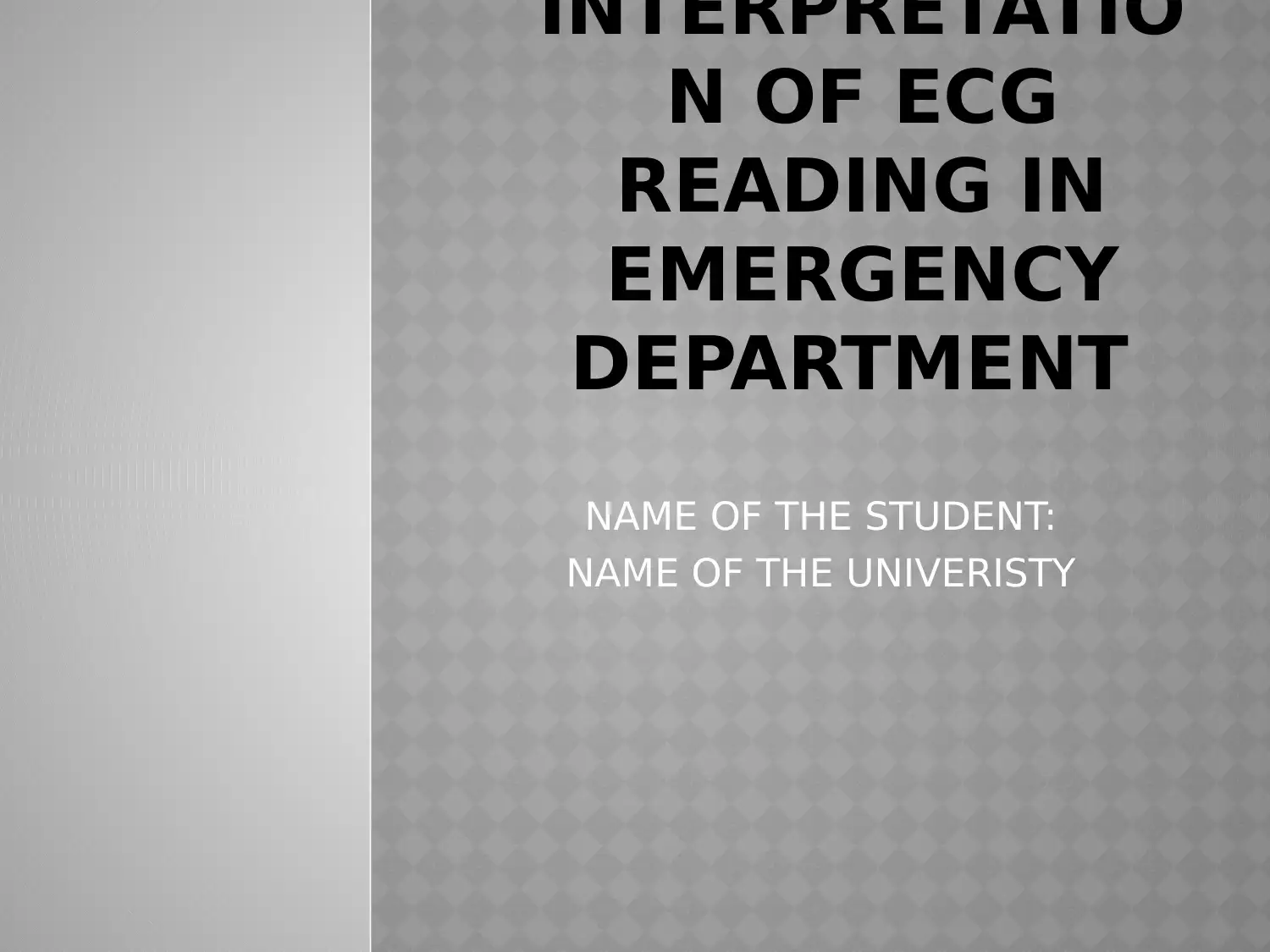
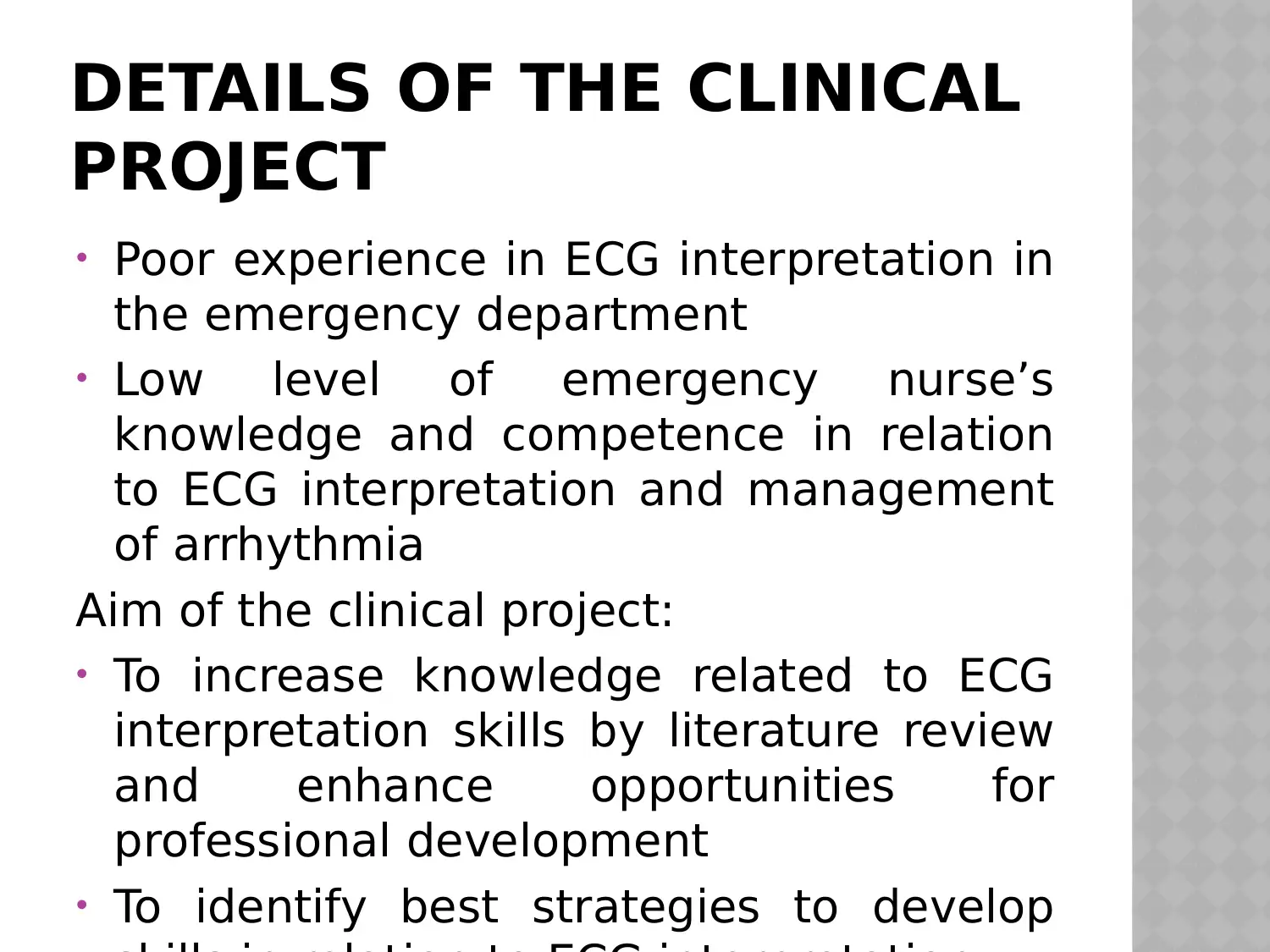
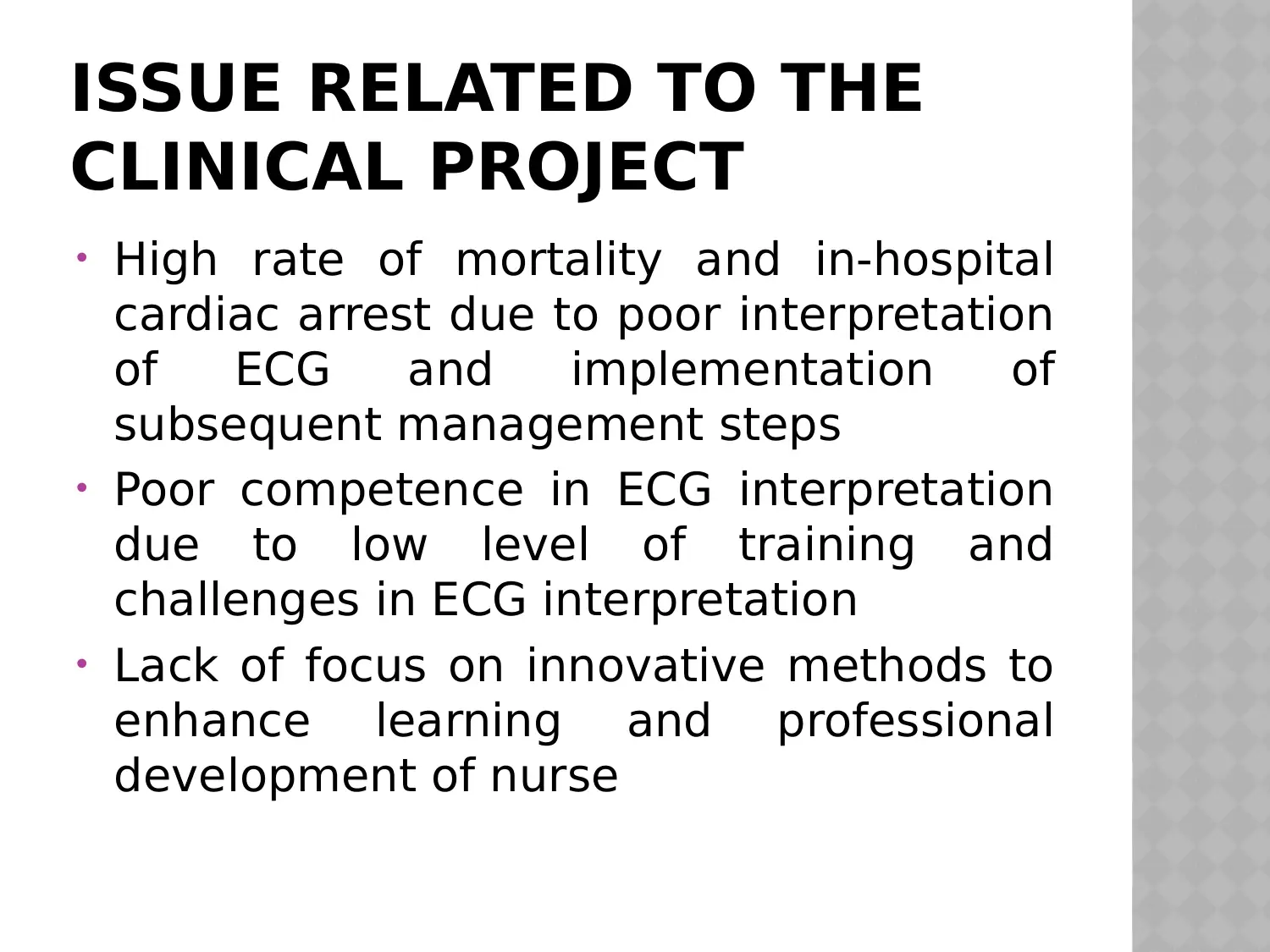

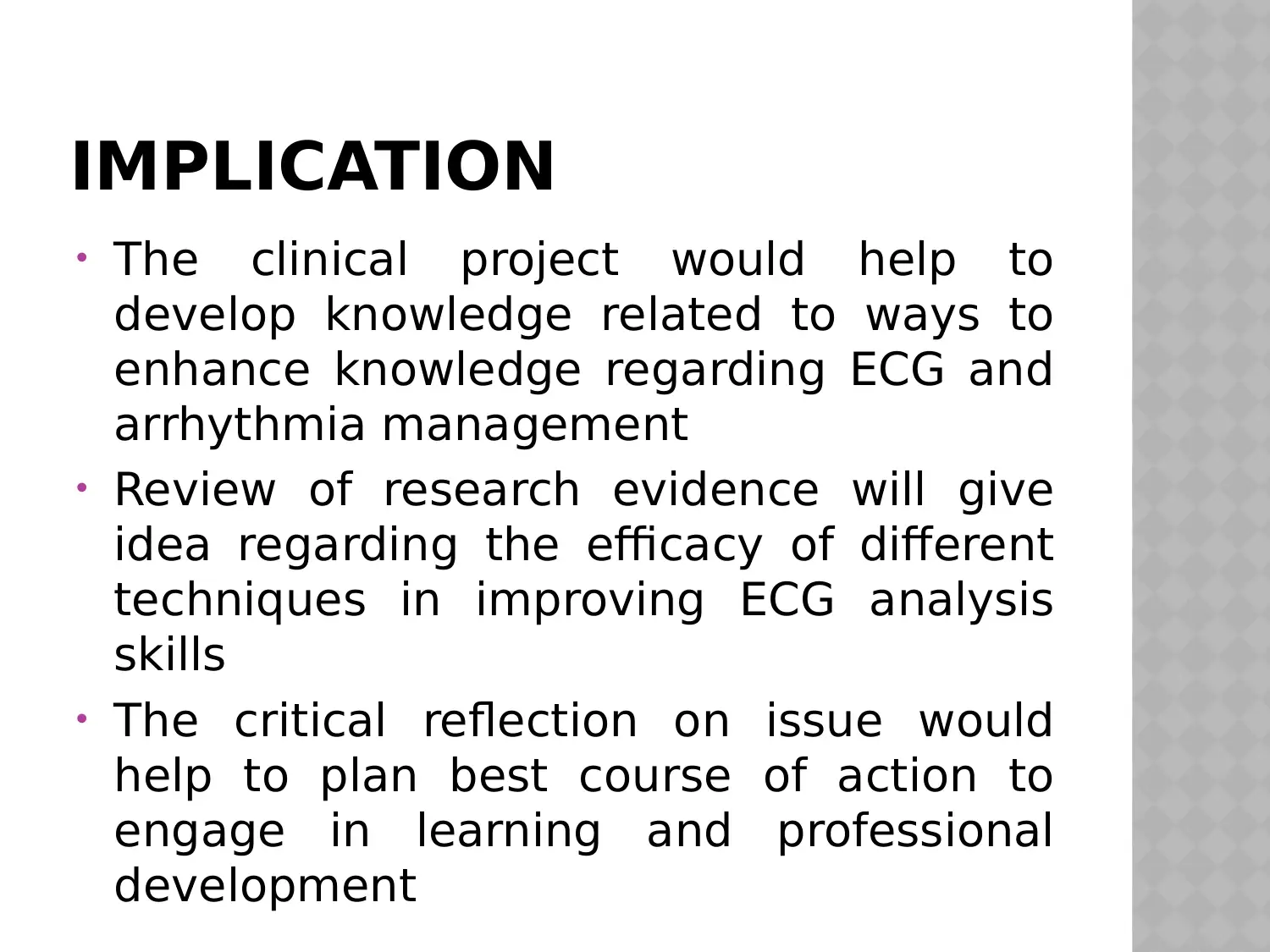
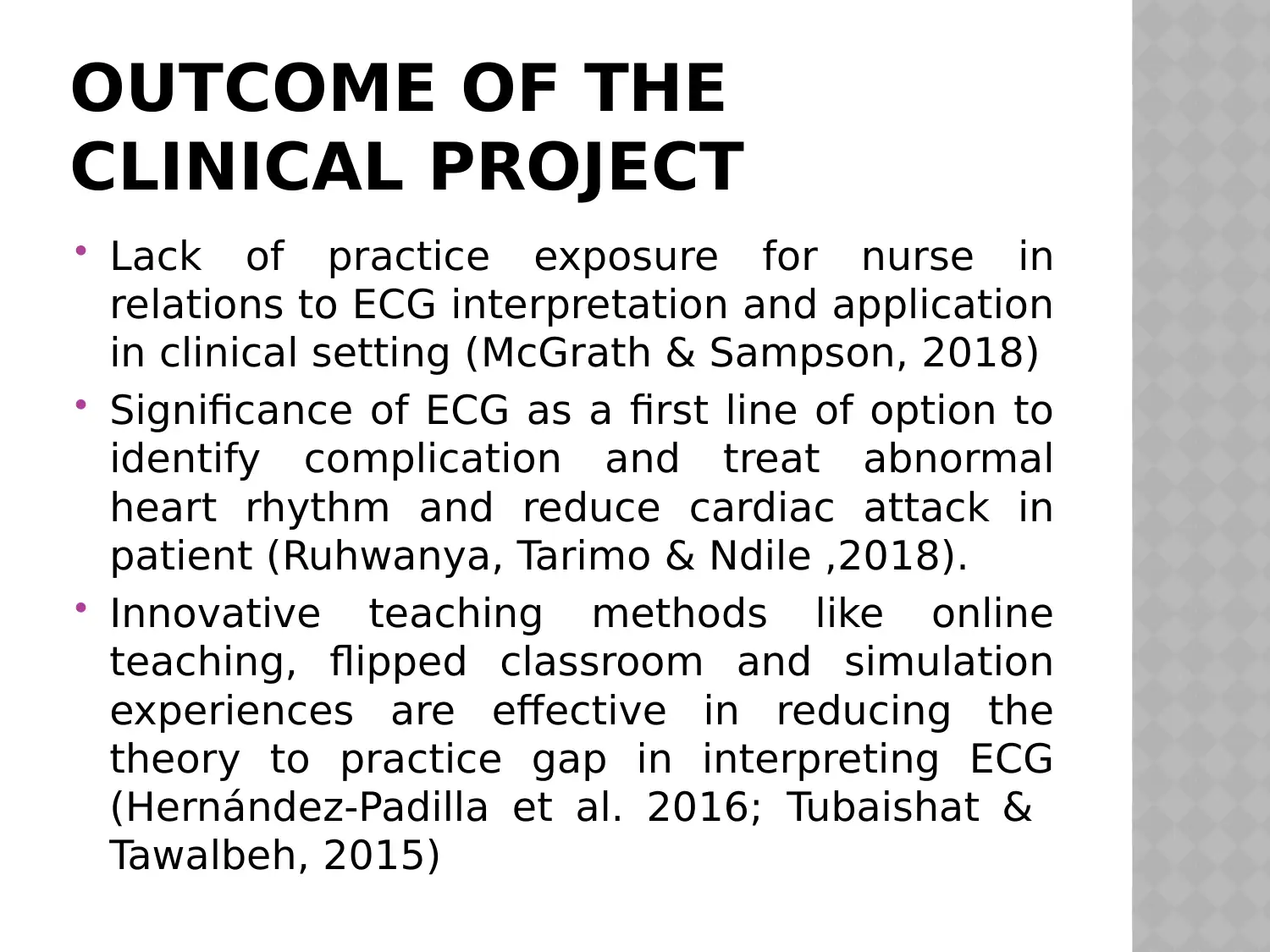
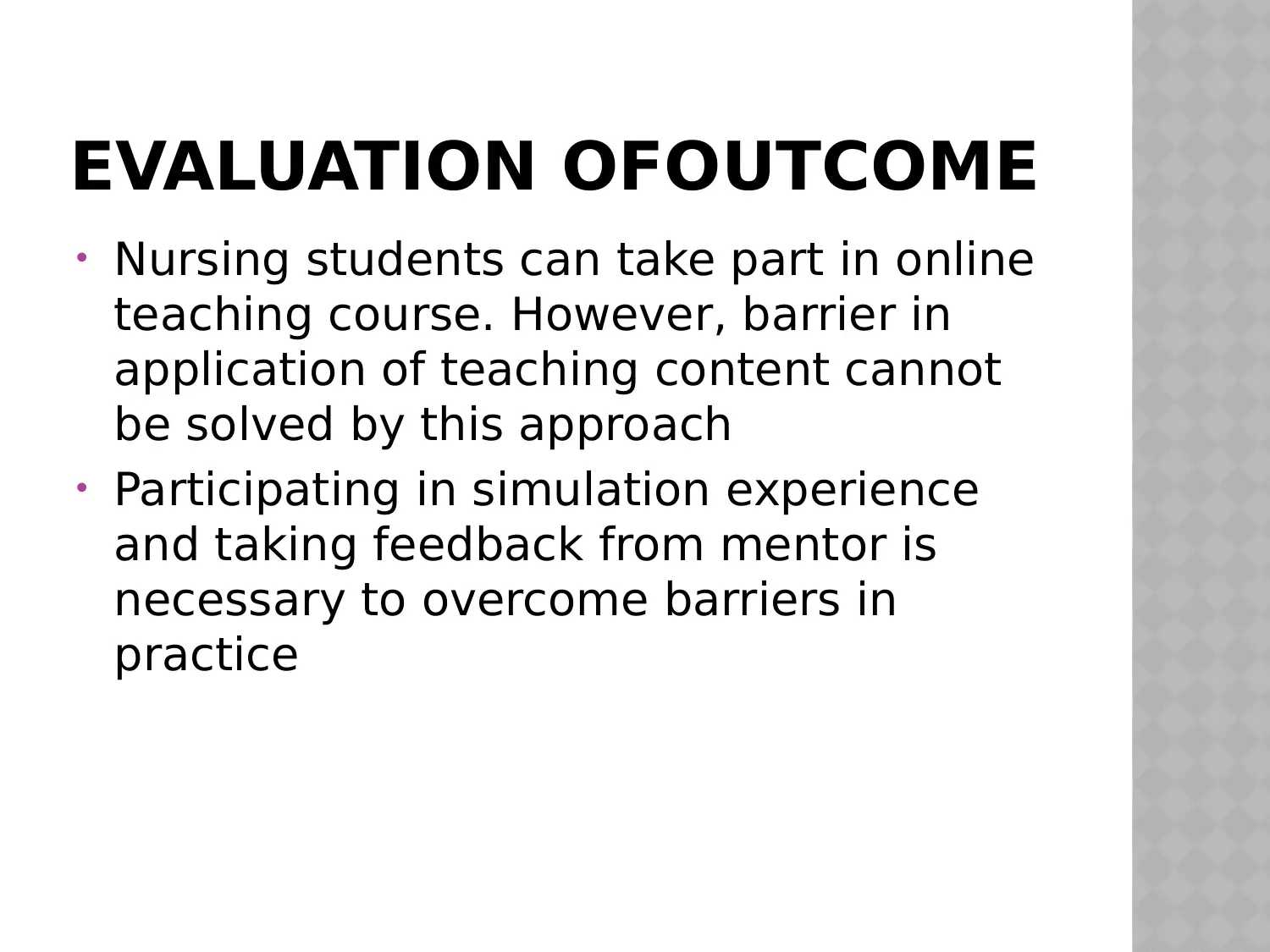
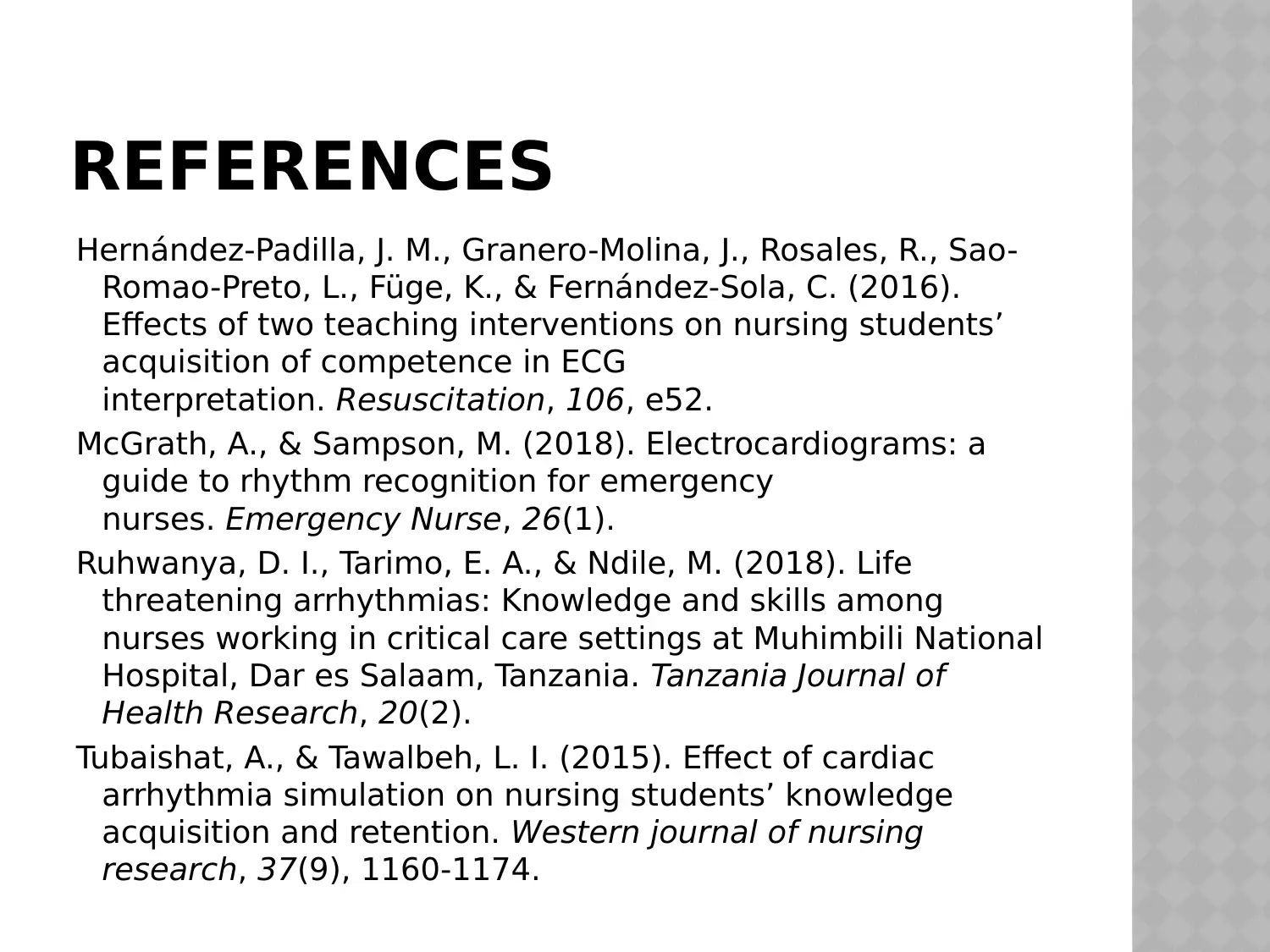


![[object Object]](/_next/static/media/star-bottom.7253800d.svg)